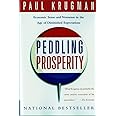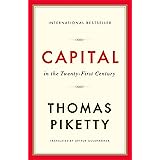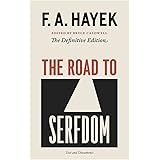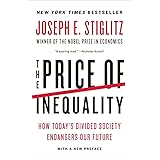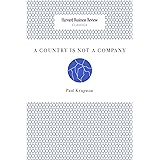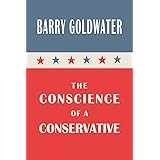
Enjoy fast, free delivery, exclusive deals, and award-winning movies & TV shows with Prime
Try Prime
and start saving today with fast, free delivery
Amazon Prime includes:
Fast, FREE Delivery is available to Prime members. To join, select "Try Amazon Prime and start saving today with Fast, FREE Delivery" below the Add to Cart button.
Amazon Prime members enjoy:- Cardmembers earn 5% Back at Amazon.com with a Prime Credit Card.
- Unlimited Free Two-Day Delivery
- Streaming of thousands of movies and TV shows with limited ads on Prime Video.
- A Kindle book to borrow for free each month - with no due dates
- Listen to over 2 million songs and hundreds of playlists
- Unlimited photo storage with anywhere access
Important: Your credit card will NOT be charged when you start your free trial or if you cancel during the trial period. If you're happy with Amazon Prime, do nothing. At the end of the free trial, your membership will automatically upgrade to a monthly membership.
Buy new:
-50% $9.03$9.03
Ships from: Amazon Sold by: Sweetbugaboostore
Save with Used - Very Good
$0.22$0.22

Download the free Kindle app and start reading Kindle books instantly on your smartphone, tablet, or computer - no Kindle device required.
Read instantly on your browser with Kindle for Web.
Using your mobile phone camera - scan the code below and download the Kindle app.

OK
 Audible sample Sample
Audible sample Sample 


The Conscience of a Liberal Reprint Edition
Purchase options and add-ons
"The most consistent and courageous―and unapologetic―liberal partisan in American journalism." ―Michael Tomasky, New York Review of Books
In this "clear, provocative" (Boston Globe) New York Times bestseller, Paul Krugman, today's most widely read economist, examines the past eighty years of American history, from the reforms that tamed the harsh inequality of the Gilded Age and the 1920s to the unraveling of that achievement and the reemergence of immense economic and political inequality since the 1970s. Seeking to understand both what happened to middle-class America and what it will take to achieve a "new New Deal," Krugman has created his finest book to date, a "stimulating manifesto" offering "a compelling historical defense of liberalism and a clarion call for Americans to retake control of their economic destiny" (Publishers Weekly).
"As Democrats seek a rationale not merely for returning to power, but for fundamentally changing―or changing back―the relationship between America's government and its citizens, Mr. Krugman's arguments will prove vital in the months and years ahead." ―Peter Beinart, New York Times
- ISBN-100393333132
- ISBN-13978-0393333138
- EditionReprint
- PublisherW. W. Norton & Company
- Publication dateJanuary 12, 2009
- LanguageEnglish
- Dimensions5.5 x 0.8 x 8.3 inches
- Print length352 pages
Books with Buzz
Discover the latest buzz-worthy books, from mysteries and romance to humor and nonfiction. Explore more
Frequently bought together

Similar items that may deliver to you quickly
Editorial Reviews
About the Author
Product details
- Publisher : W. W. Norton & Company; Reprint edition (January 12, 2009)
- Language : English
- Paperback : 352 pages
- ISBN-10 : 0393333132
- ISBN-13 : 978-0393333138
- Item Weight : 9.6 ounces
- Dimensions : 5.5 x 0.8 x 8.3 inches
- Best Sellers Rank: #1,181,491 in Books (See Top 100 in Books)
- #253 in Income Inequality
- #872 in Government Social Policy
- #2,406 in Political Conservatism & Liberalism
- Customer Reviews:
About the author

Paul Krugman writes a twice-weekly column for the op-ed page of the New York Times. A winner of the John Bates Clark Medal who was also named Columnist of the Year by Editor and Publisher magazine, he teaches economics at Princeton University.
Customer reviews
Customer Reviews, including Product Star Ratings help customers to learn more about the product and decide whether it is the right product for them.
To calculate the overall star rating and percentage breakdown by star, we don’t use a simple average. Instead, our system considers things like how recent a review is and if the reviewer bought the item on Amazon. It also analyzed reviews to verify trustworthiness.
Learn more how customers reviews work on Amazon-
Top reviews
Top reviews from the United States
There was a problem filtering reviews right now. Please try again later.
With "movement conservative" potentially crushed in the 2008 elections (which he could not foresee with certainty in his book written in 2007), and if the new liberal government goes on to perform well in a new New Deal effort, the result will be a renewal of our two-party system that keeps the other side "honest," but does not demand domination over decades, per Krugman.
The book flows well and is highly efficient in telling its story. The details are there, and the principals in the story are brought to life with credible simplicity. Presidents, for example:
FDR: "FDR's mission in office was to show that government activism works....And he did." "FDR's success gave liberal intellectuals credibility and prestige...."
Truman: "In 1946, Truman proposed a system of national health insurance that would have created a single-payer system." "(His) bid failed in the face of opposition from two critical groups: The American Medical Association and Southern whites."
Eisenhower: "...taxes on corporations and the rich were even higher during the Eisenhower years than they had been under FDR." "...he preached `moderation,' and considered those who wanted to roll back the New Deal "stupid." "...Eisenhower's `modern' Republicans took control of their party...."
Nixon: "...Nixon governed like a liberal in many ways: He indexed Social Security for inflation...expanded government regulation of workplace safety and the environment, and even tried to introduce universal health insurance." "Nixon was a transitional figure....For Nixon it was all personal." "...he did not share the conservative movement's hatred for government intervention and the welfare state." "...he was a pragmatist, rather than an ideologue." "(But he) showed how the dark side of America...above all, race, could be used to win elections."
Reagan: "Ronald Reagan... ran for Governor of California in part on a promise to repeal the state's fair housing act." "The youth rebellion (of the 60's) frightened and infuriated many Americans - Ronald Reagan in particular." "(He) was able to signal sympathy for racism without every saying anything overtly racist." "(He) tried and failed to slash Social Security benefits." "Reagan taught the movement (conservative) how to clothe elitist economic ideas in populist rhetoric."
Clinton: "Clinton famously tried to introduce a form of universal health care - and completely failed." A major reason for his failure was that he did not get started on the issue soon enough. He was preoccupied with budget issues. He simply was not ready with the details of his health care plan. His campaign had not gotten into any specifics. "...Bill Clinton never had a well-defined agenda. In a fundamental sense, he didn't know what he was supposed to do....and he didn't build a movement."
George W. Bush: "(In 2004), the nation rallied around George Bush, as he promised to punish the `evildoers' responsible for 9/11 and bring in Osama dead or alive." "We may never know why his administration wanted that war so badly." "...the war worked to Bush's advantage for a surprisingly long time." "Without that purge (in Florida of voters identified as felons), George W. Bush would not
have made it to the White House."
The thesis of the book includes the argument that "movement conservatism has been antidemocratic, with an attraction to authoritarianism, from the beginning." Krugman says that "conservatives insist that those in power have the right to do as they please." Walking a bit of a thin line here, he goes on to say that "The only way a progressive agenda can be enacted is if Democrats have both the presidency and a large enough majority in Congress to overcome Republican opposition." (And do as they please?) What may be missing here, is an analysis of how that mentality led to the downfall of the Bush administration and the Republican right after the 2004 election?
Another element of his thesis is that the benefits of the post-WWII boom came to the end in the `70's, with the economic crisis brought on by rising inflation and high oil prices. What has followed has been a rapid "concentration of income in the hands of a small minority." And once the funding was combined with the political leadership, the "vast right-wing conspiracy" was born, "as we know today."
Krugman sees health care as the primary issue for a new liberal administration. He argues that the moral case for universal health care isn't in dispute and that "Health care reform is the natural centerpiece of a new New Deal." He provides comparisons of the current U.S. system vs. nations with universal care to reach his conclusion that "We're off the charts in terms of what we pay for care, but only in the middle of the pack in terms of what we get for our money." This is a good chapter, full of all kinds of statistics and insights, including that Medicare was signed by President Johnson "less than nine months after his victory in the 1964 election." "Thus, it's a very good thing that health care reform has become a central issue in the current presidential campaign." He adds that universal health care is not a revolutionary or radical idea today and that there are many examples to follow that are well-tested. And back to real politics, "Getting universal care should be the key domestic priority for modern liberals."
Although it is not talked about it much in the book, I'd think that immigration reform would be another priority for "modern liberals," both for real politic and for humanitarian and other reasons. Krugman notes that "immigration is a deeply divisive issue for the for the coalition that supports movement conservative....(and) The obvious reality that an important wing of the Republican Party is bitterly anti-immigrant pushes non-white immigrants into the arms of the Democratic Party. " And, "Republicans have sought to contain this problem by keeping immigrants and their descendants disenfranchises as long as possible."
There is much more in this excellent book, and most of it is full of witty insight, e.g., "an obsession with other people's sexual lives has been an enduring factor in movement conservatism - a key source of the movement's, um, passion." And, "Movement conservatism...found a mass popular base by finding ways to appeal to two grassroots sentiments: white backlash and paranoia about communism." And: Ronald Reagan's 1966 California campaign marked the first great electoral success for movement conservative. And one more: "...both long term trends in American society and recent events have damaged the ability of movement conservatives to change the subject, to mask the reality that they are on the side of the privileged...."
In summary, if you consider yourself a "liberal," you will probably love this book and find all kinds of reinforcement for your base positions. If you consider yourself a "conservative," you will most likely not read the book. But if Krugman turns out to be right, the difference between the two parties will cease to be as extreme as they have been, assuming that the Obama administration is successful operationally in its legislation and in making the collective good the primary goal once more.
At that point, someone can write the book, "The Conscience of a Centrist." Seems like a nice thought to me.
Krugman compares the economy of today with the economy of the Great Depression and sees a great arc of change that has come full circle and back to haunt us. Unbridled Free market capitalism was rampant and out of control during the roaring twenties; taxes on the wealthy were at an all time low of 25%; union participation was 11%; congress was polarized; there was a great inequality of wealth between rich and poor.
The rise of the middle class was not a result of market forces but the direct result of legislation passed by FDR as part of the NEW DEAL. The Social Security Act created a safety net for the elderly and the handicapped, as did unemployment compensation for the unemployed; The Fair Labor Act created a minimum wage and a standard 40 hour work week ; The Wagoner Act allowed Unions to organize ; The WPA created jobs for the unemployed; spending on WWII was 30% of GDP. All of these actions lifted up the poor and the under class. The economy soared.
At the same time legislation was also enacted to limit speculation on Wall Street. The Rich were taxed unmercifully. The economy was slowly regulated from one industry to the next.
Congress started passing legislation in a bipartisan way, union participation increased to 32% which lifted up even the non union members; the great inequalities were compressed so that the rich were brought down and the poor lifted up creating a tremendous middle class. Life was good.
The signing of the Civil Rights Act of 1965 and the new Social Security Act which created Medicare were perhaps the tipping point that gave conservative right wing nuts the ammunition they needed to start unraveling the NEW DEAL. Racial undertones in the South still simmering since the civil war boiled over and delivered the southern states to the Republican party. Reagan played on that sentiment with comments pertaining to "those people ripping of the government on welfare". Reagan also played on the fear that the democratic party could not defend the country. Neither of these charges were true but the actor was good and the unraveling of the NEW DEAL continued.
Reagan and party slowly deregulated one industry after another, fought the unions until membership was back down to 11%, gave tax cuts to the rich until the tax rates are almost to great depression levels again, and finally Bill Clinton deregulated the banks which gave them a license to steal.
So the Arc of change has come full circle....We have an opportunity with a Democratic White House, House, and Senate, to turn this mess around and a great place to start would be Universal Health Care for all. Krugman shows some great comparisons between our country and other advanced countries regarding health care reform.. Krugman is convincing and brilliant. I would recommend this book to anyone.
Top reviews from other countries
Überrascht war ich, wie Krugman in "The Conscience of a Liberal" so klar parteipolitisch für die Demokraten Stellung bezieht, was aber nicht heißt, dass er unsachlich wird. Seine Untersuchungen über die Entwicklung der Einkommensverteilung in den USA: Drastische Angleichung ab dem 2. Weltkrieg und plötzlich steigende Konzentration seit den 1980er Jahren, ist sehr interessant.
Im Economist erschien ein meines Erachtens relevanter Einwand zu Krugmans Thesen. Was zählt, ist nicht so sehr die Einkommensverteilung sondern die Verteilung der Konsummöglichkeiten. In den 20er Jahren hatten reiche Leute Autos, Kühlschränke und Telefone. Die Armen hatten nichts dergleichen. Heute haben reiche Leute vielleicht etwas fetzigere Autos als die Armen und einen Designer-Kühlschrank. Der Unterschied heute ist aber um ein vielfaches geringer als der zwischen Haben und Nicht-Haben. Darum hat auch Schumpeter in "Kapitalismus, Sozialismus und Demokratie" geschrieben, dass der Kapitalismus vor allem den ärmeren Leuten viel gebracht hat, trotz der ungleichen Einkommensverteilung.
Krugman hat sicher recht, dass er für sein Land eine allgemeine Krankenversicherung anmahnt. In der Medizin ist es anders als bei Autos oder der Telekommunikation. Hier sorgt von Marktkräften getriebener technischer Fortschritt nicht dafür, dass das was heute teuer und den reichen vorbehalten ist, binnen kurzer Zeit billig und auch für die Armen bezahlbar wird. Moderne Medizintechnik wird vielmehr immer unerschwinglicher.
Alles in allem fand ich andere Krugman Bücher wie "Pop Internationalism" pfiffiger. Das Buch gibt aber einen interessanten Einblick in aktuelle US Innenpolitik.




